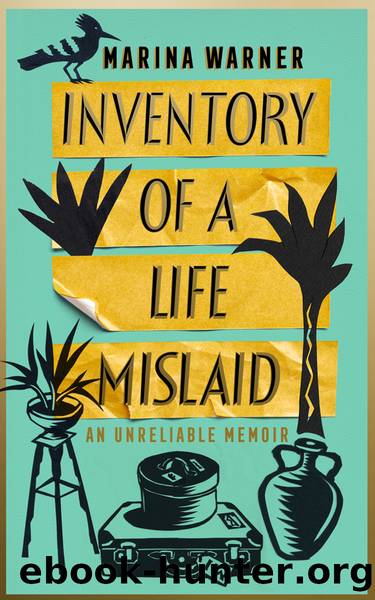Inventory of a Life Mislaid by Marina Warner

Author:Marina Warner [Warner, Marina]
Language: eng
Format: epub
Publisher: HarperCollins Publishers
Published: 2021-02-19T17:00:00+00:00
In her furious essay âThree Guineasâ, written in 1938, Virginia Woolf savages the heedless assumption of legitimacy by historic institutions â the army, the law, the academy â and she included photographs of establishment and empire on display: Black Rod leading MPs into Parliament and a Chelsea pensioner, wearing a cuirass of medals. Here Woolf is being contradictory and contrary at once â the veteran looks abashed by his conspicuousness, and, to my eyes at least, his eyes have slid sideways as if disowning the heavy panoply of glorious and deadly deeds which loads down his narrow chest, his slight shoulders. He has trimmed his moustache carefully and polished up those medals, but itâs not impossible to sense something hovering beside him, a ghost, a sound of a cry as someone is hit, the artillery, the scurrying by of a rat.
Woolf asks, âWhat connection is there between the sartorial splendours of the educated man and the photographs of ruined houses and dead bodies? Obviously the connection between dress and war is not far to seek; your finest clothes are those that you wear as soldiers.â The argument then opens out, to connect those gleaming festoons on the veteranâs chest to the restrictions on womenâs education and access to public platforms â from which to oppose war, among other things.
Two years before, in a piece she wrote for the Bloomsberriesâ Memoir Club, Virginia Woolf asked herself âAm I a snob?â She answers in the affirmative, but so glancingly and allusively, with so many vignettes and sallies about hostesses and their pretensions that the wit at othersâ expense dissolves her self-inculpation, and another dazzling performance as satirist and social chronicler of mores remains.
I have always feared that Iâve inherited my fatherâs anxious snobbery, which went with a kind of quick touchiness over social slights, imagined and other. I worry that I bear the stamp of colonial ambivalence, the creep and cringe of those exiled from the metropole, combined with the brutal superiority of the official class, so painfully observed in memoirs of that era of British power in Egypt, such as the diaries of George Seferis, and the novels of Fausta Cialente, an Italian from Trieste who fled Mussoliniâs regime for Egypt, where she stayed for nearly thirty years. I fear that something I do or say will betray that early imprint of empire yarns, my childhood saturation in derring-do adventure stories by Captain (Frederick) Marryat, G.A. Henty and Rider Haggard, in Anthony Hopeâs The Prisoner of Zenda, the Hornblower books and John Buchan. I devoured their books as a child bookworm, for they filled the shelves of my grandparentsâ and parentsâ bookcases. They painted a world in which the villains are foreigners, often Levantines and ânativesâ of Samarkand, Calcutta, Khartoum â orientals, a term which covered Jews and Arabs regardless, like âthe Smyrna merchantâ in Graham Greeneâs early novel, Stamboul Train. Or they were generically âIndiansâ. Indeed the breadth of this term, embracing peoples from the North to the South Pole,
Download
This site does not store any files on its server. We only index and link to content provided by other sites. Please contact the content providers to delete copyright contents if any and email us, we'll remove relevant links or contents immediately.
| African | Asian |
| Australia & Oceania | Canadian |
| Caribbean & Latin American | European |
| Jewish | Middle Eastern |
| Russian |
The Hating Game by Sally Thorne(19269)
The Universe of Us by Lang Leav(15076)
Sad Girls by Lang Leav(14422)
The Lover by Duras Marguerite(7901)
The Rosie Project by Graeme Simsion(6412)
Smoke & Mirrors by Michael Faudet(6191)
Big Little Lies by Liane Moriarty(5804)
The Poppy War by R. F. Kuang(5694)
The Shadow Of The Wind by Carlos Ruiz Zafón(5693)
An Echo of Things to Come by James Islington(4880)
Memories by Lang Leav(4799)
What Alice Forgot by Liane Moriarty(4631)
From Sand and Ash by Amy Harmon(4520)
The Poetry of Pablo Neruda by Pablo Neruda(4105)
The Tattooist of Auschwitz by Heather Morris(3847)
Ficciones by Jorge Luis Borges(3634)
The Rosie Effect by Graeme Simsion(3465)
Guild Hunters Novels 1-4 by Nalini Singh(3463)
THE ONE YOU CANNOT HAVE by Shenoy Preeti(3370)
